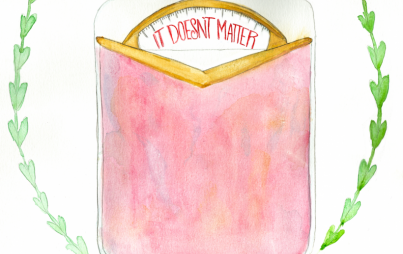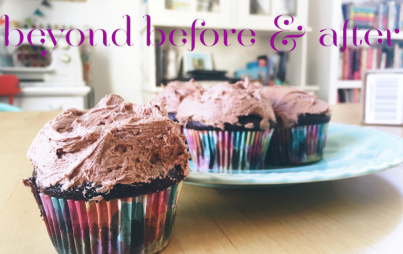
Other people’s actions? Other people’s opinions? Can’t do anything about it.
You are allowed to let go. You are allowed to lower the stakes.
I teach people how to eat normally after dieting.
Across the board, the people I work with all describe themselves as “type A personalities” or “perfectionists.”
And I know it well. I used to be one too.
The food and body issues we experience are not only a manifestation of our underlying fears that everything is falling apart — they're also due to the ensuing irrational panic that if we don’t try to take care of everything, we’re all screwed.
We can’t trust anything to work if we aren’t actively controlling and tending to it.
Disaster. Chaos. Destruction.
And even worse, the thought that, when the dust settles, people are going to think we are weak, powerless, foolish.
We’re not usually consciously aware of it, but this irrational fear is what we operate under. Our minds are always jumping to the worst-case scenario.
The stakes for everything seem so extremely high because we make them that high.
So the biggest advice I can give anyone who identifies with being a perfectionist or has control issues is to lower the stakes.
Unless you're performing brain surgery, conducting a military coup, or doing, well, anything with legitimately high stakes, you are making the stakes too damn high.
Catching that train, looking amazing in your jeans, making sure your children finish their yogurt, making sure you buy the right yogurt, getting the best seat in the restaurant, making people like you — these are all low stakes.
Most of our daily activities don't actually have high stakes — yet we inflate them until it seems like if we don't single-handedly fix everything, our lives are going to completely fall apart.
Why is this line of thinking so hard to avoid?
The (il)logic of it tends to go something like this: I have to make things go a certain way and make them think I’m doing so well, or else I am failing, and if I fail, I will become ugly and poor and nobody will love me and then I’ll die and people will roll their eyes at my funeral.
I could even go so far as to say that dying actually also has lower stakes than we give it, but that’s a particular way of looking at the world that I don’t expect everyone to adopt. (And yes, of course, your life is very precious and important. But we still can’t control what’s going to happen to us.)
And that leads us to another side of this: the illusion of control.
We have some control over what is right in front of us, and we can take action. But that’s about it.
Everything else is out of our control.
Other people’s actions? Other people’s opinions?
Can’t do anything about it. Nothing.
So we can walk around feeling like we have control over everything that is happening, worrying that we are letting things fall apart, failing, and letting everyone down — but all we're really doing is making ourselves miserable, stressed, and sick.
You can’t live life trying to eliminate eye-rolling at your funeral.
You are allowed to let go. You are allowed to lower the stakes.
And you can let go of your idea of control, because you don’t really have any anyway.







